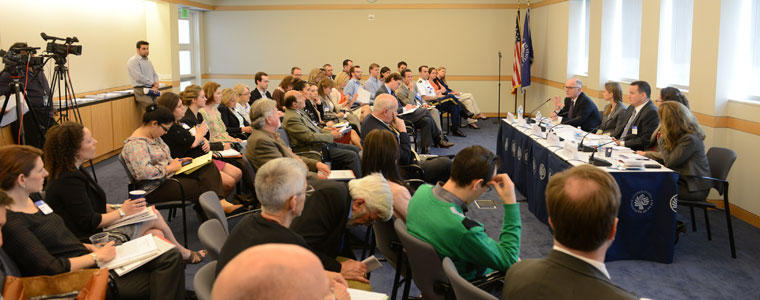Civil-Military Relations in Afghanistan: Lessons Learned from a Ten Year Engagement
The intervention in Afghanistan in many ways redefined how civilians and military personnel work together in conflict zones. International military forces perceived the provision of aid and economic development as a key part of their ultimate objective of state-building through stabilization. Aid agencies tended to view military efforts as short-term and lacking a true developmental perspective or understanding of humanitarian principles. For many years these efforts co-existed in a state of tension, or often reluctant cooperation, with neither side fully understanding the others concerns. As international assistance, both military and civilian, begins to decrease in Afghanistan, it is time to ask whether anything has been learned from this decade-long, uneasy cohabitation.

The U.S. Institute of Peace (USIP) hosted a panel discussion on Wednesday April 24th from 2:00pm – 3:30pm on the newly published Overseas Development Institute (ODI) report “Search for Common Ground: Civil-Military Relations in Afghanistan, 2002-12” and provided an opportunity to reflect on lessons learned over the past 10 years in Afghanistan with a roundtable of experts stemming from the research, military and NGO communities.
Panelists
- John Agoglia – Vice President for Government Services, IDS International
- Ashley Jackson – Research Fellow, Humanitarian Policy Group
- Lisa Schirch – Director, 3P Human Security; Research Professor, The Center for Justice and Peacebuilding at Eastern Mennonite University; Policy Adviser, The Alliance for Peacebuilding
- Ann Vaughn – Senior Policy Advisor, Mercy Corps
- Moderated by: Robert M. Perito – Director, Security Sector Governance Center, U.S. Institute of Peace



